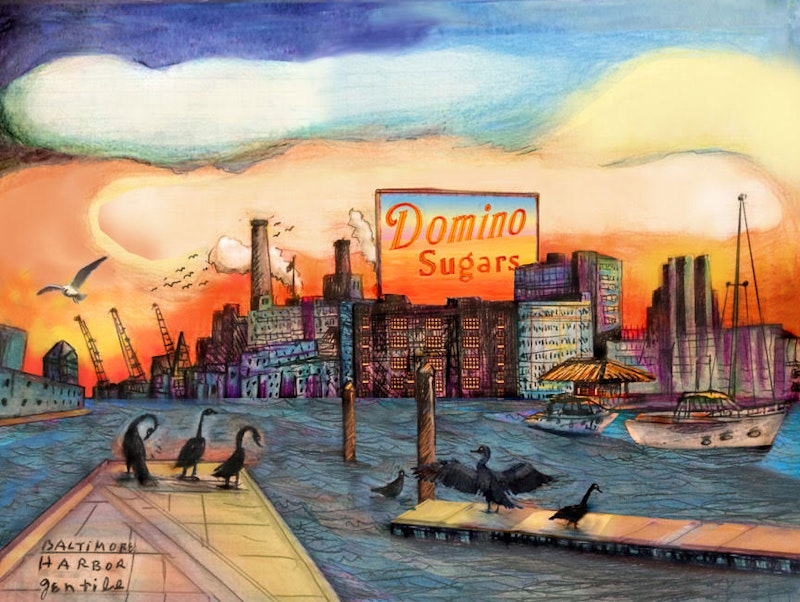It’s hard to picture the South without its distinctive accents. Many people who live below the Mason-Dixon Line speak with slow, rounded vowel sounds, which are referred to as drawls. The voice of Sen. Lindsey Graham of South Carolina comes to mind. In America, our common language is dying out.
Speech is essential to our culture. A recent Cambridge University study shows young Atlanta, Georgia residents made concerted efforts to lose their accents. There are reasons why: The United States population now stretches from the Greatest Generation (GI Generation): born 1901–1927 to Generation Alpha: born 2010-2024. The rise in mobility and social media saturation drives generational shifts and creates divisions across the land.
College students don’t want to sound like their parents or grandparents. Obviously passionate about the way they speak, young adults prefer using either mainstream General American or California English—spiked with dashes of upspeak and overuse of the verbal tick “like.” National news broadcasters tend to talk in a consistent tone and manner.
There is debate on a precise number of speech variations across the nation. Denser city populations breed more metamorphosis. International transplants constantly add to the vocabulary. Words and pronunciations vary, making it harder to keep tabs. However, not all languages have distinct patterns, particularly American English, which is perplexing. Try explaining homonyms to a German.
A dialect is the distinct sound related to specific regions across the country, for instance: New Orleans has Cajun English. The Northern Cities Vowel Shift (NCVS) reaches from Fargo into Chicago over to Detroit. There’s the singing mountain talk of Appalachia that sounds Irish. The cowboy twang of Texas. The east New England nasal, add the “ah” as you “pahk the cah” in Boston. What about “Who’s your tough guy?” New York fast-talking is Mel Blanc doing Bugs Bunny.
The Mid-Atlantic dialect is where words are sliced and diced, which makes for fascinating communication. Verbal short cuts offer more vigor, often sounding like a barrel full of Os and Rs rolling down a hill. Delco’s a regional hybrid—the geography spans across several states that includes Delaware and Southern New Jersey. The lingo is spoken in Philadelphia and parts nearby eastward (Mare of Eastown) where water is referred to as “wooder.” The region has similar speech patterns with variations. The Potomac River is the southern border of the vernacular, defined by the Capital Beltway entrance, I-495 in Maryland which circles Washington, DC.
Further south, off the Delmarva Peninsula, Tangier Island, Virginia is situated 12 miles offshore in the Chesapeake Bay. This isolated setting is reachable only by boat or plane. As the Bay water levels rise, the island is sinking. Here, 460 residents have their own unique language.
Peaceful tidewater wetlands hallmark the former Soft Crab Capital of the World. The mainland seldom gets to listen to the everyday language of the locals. It’s a thick, lower-class Cockney brogue. Since English settlers arrived here in the 17th century, not much has changed. During the War of 1812, Admiral Cockburn and the British set up a staging area, planning an attack on Baltimore.
To the average ear, it’s difficult to follow. You have a good chance of hearing it on the Eastern Shore in Crisfield, Maryland when the watermen come ashore to conduct business. We take no comfort in the fact the island’s fate is facing an inevitable crisis; their heritage is slowly descending into the sea.
It’s not uncommon to hear predictions about American English’s downfall. True, dialects passed down through generations are disappearing at a rapid rate. Is there an Accent Museum? Maybe it’s time to start thinking about establishing a sound archive to record and preserve the diverse voices of the United States for beyond tomorrow.
I’m from Baltimore, which is regarded as Southern by some. Their beloved accent is on the endangered species list. The city intends to usher in a new era with a major Inner Harbor revitalization plan that intends to draw in more people, businesses, and buildings. Praps (perhaps) a signature voice is also at risk?
Baltimore-area speech stands unparalleled in its own linguistic field. Delivered with the finesse of a ‘Tony Award’ theater production; the words are squeezed together popping-out syllables right and left to create new words. The front-loaded long, twisted “O” vowel bounces forward on the tongue as it fights for attention, it’s an art form. And it’s not just one sound, but a unique fusion that reflects the waterfront city’s international racial and cultural influences.
In general, the transient nature of the cadence can vary from one neighborhood to the next. Black slang (“aard” as in all right) mixes with white, blue-collar worker speak highlighted by backwoods Appalachian influences. Black Baltimorean residents pronounce Baltimore as “Baldamore” while the white working-class “Bawlmer” Merlin is more common. The patois has earned its own category: Baltimorese.
It’s difficult to master, give it a shot. Mom walks in kitchen and says “Dejeet?” which means “Did you eat?” Outside, a plant growing in the garden is a “flar.” Or perhaps you were raised “Caflick” meaning Catholic. A question one might hear “Where’s Allanic Abenoo?” translates to “Where’s Atlantic Avenue?” Pure lyricism.
If you try to disguise your voice, a giveaway word will sneak in. By chance, if you’re in a room with a fellow Baltimorean, bet they’ll come over and inquire “You from Bawlmer?” One of my favorites: “I recently overheard someone order a “giraffe” of wine.” That’s just one of a few of submissions in Thom LaCosta’s collecting efforts, here’s the guide: (How to co-moon-icate wiff the natives.)
Phonetically speaking, speech does change over time. Guess it depends on how comfortable we feel talking in any given situation. So, if you’re born with a Baltimore accent, you can tone it down, but you can never get rid of it entirely. And why would you? After all, an accent is precious, just like snowballs. I hope it’s never lost.

